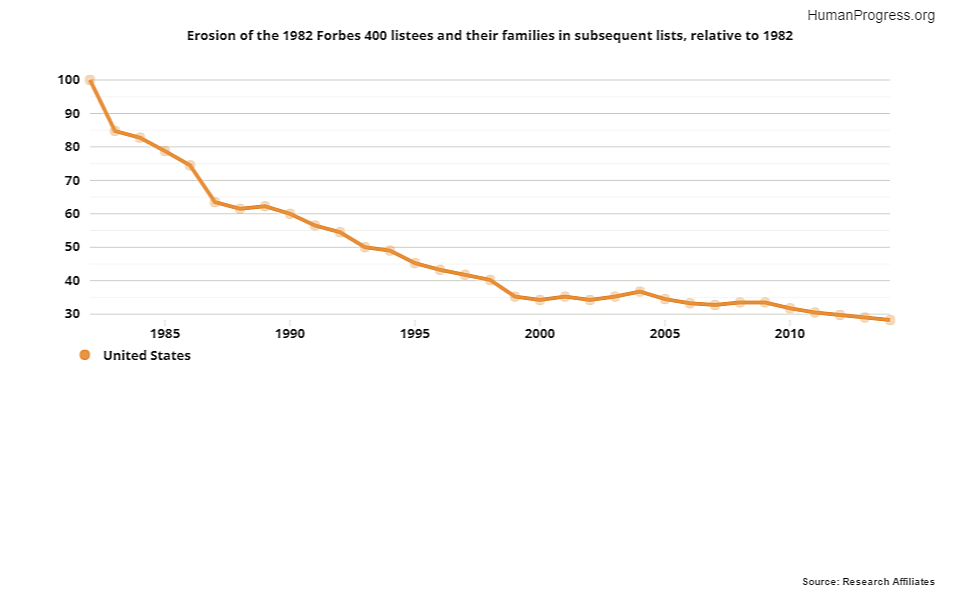Your odds of “making it to the top” might be better than you think, although it’s tough to stay on top once you get there.
According to research from Cornell University, over 50 percent of Americans find themselves among the top 10 percent of income-earners for at least one year during their working lives. Over 11 percent of Americans will be counted among the top 1 percent of income-earners (i.e., people making at minimum $332,000 per annum) for at least one year.
How is this possible? Simple: the rate of turnover in these groups is extremely high.
Just how high? Some 94 percent of Americans who reach “top 1 percent” income status will enjoy it for only a single year. Approximately 99 percent will lose their “top 1 percent” status within a decade.
Now consider the top 400 U.S. income-earners—a far more exclusive club than the top 1 percent. Between 1992 and 2013, 72 percent of the top 400 retained that title for no more than a year. Over 97 percent retained it for no more than a decade.
HumanProgress.org advisory board member Mark Perry put it well in his recent blog post on this subject:
Whenever we hear commentary about the top or bottom income quintiles, or the top or bottom X% of Americans by income (or the Top 400 taxpayers), a common assumption is that those are static, closed, private clubs with very little dynamic turnover … But economic reality is very different—people move up and down the income quintiles and percentile groups throughout their careers and lives.
What if we look at economic mobility in terms of accumulated wealth, instead of just annual income (the latter tends to fluctuate more)?
The Forbes 400 lists the wealthiest Americans by total estimated net worth, regardless of their income during any given year. Over 71 percent of Forbes 400 listees and their heirs lost their top 400 status between 1982 and 2014.
So, the next time you find yourself discussing the very richest Americans, whether by wealth or income, keep in mind the extraordinarily high rate of turnover among them.
And even if you never become one of the 11.1 percent of Americans who fleetingly find themselves in the “top 1 percent” of U.S. income-earners, you’re still quite possibly part of the global top 1 percent.

